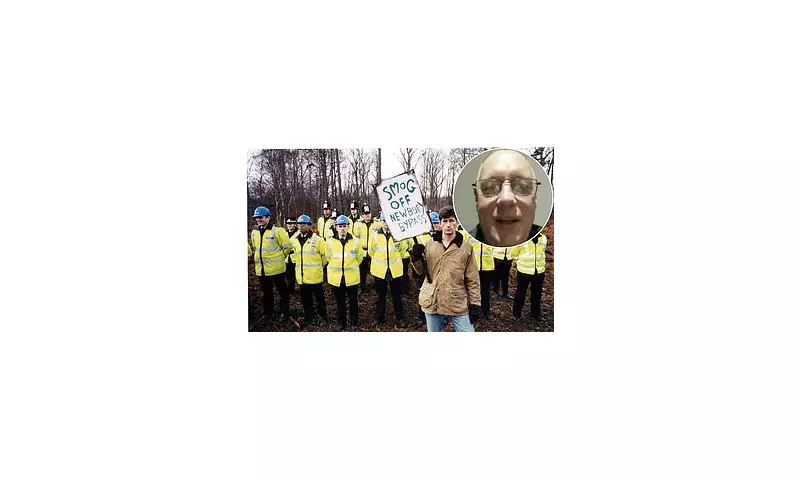
In a disturbing twist that has sent shockwaves through environmental activism circles, an undercover operative who successfully infiltrated eco-protesters at Newbury Pass has been revealed as a convicted paedophile with a history of preying on young children.
The Double Life Unmasked
The individual, who cannot be named for legal reasons, had embedded himself within the group of environmental campaigners protesting at the Berkshire site, gaining their trust and participating in their activities. However, his true identity emerged when concerned activists conducted their own background checks, uncovering his dark past.
The revelation has sparked urgent questions about the vetting procedures used for undercover operations and how someone with such serious convictions could be deployed to infiltrate protest groups.
A Chilling Criminal History
Court documents reveal the operative had previously been convicted of attempting to meet a child under 16 following sexual grooming and possessing indecent images of children. His offences involved children as young as six years old, making the security breach even more alarming.
"This is every activist's worst nightmare," said one protester who wished to remain anonymous. "We welcome people into our community, share living spaces with them, and trust them with our safety - to discover someone with these tendencies was among us is absolutely terrifying."
Security Implications and Fallout
The case has raised profound concerns about:
- The adequacy of background checks for undercover operatives
- The potential compromise of sensitive protest intelligence
- Safety protocols within activist communities
- Oversight of surveillance operations
Police and security services are now facing difficult questions about their recruitment and vetting processes, particularly when deploying individuals to work within close-knit communities where trust is paramount.
Broader Implications for Protest Surveillance
This case comes amid growing scrutiny of police surveillance tactics used against environmental groups. The exposure of a convicted sex offender operating within such circles has added fuel to existing debates about the ethics and oversight of undercover operations.
Civil liberties groups have expressed grave concerns, noting that the incident demonstrates potential systemic failures in how surveillance operations are conducted and monitored.
The Home Office has declined to comment on ongoing operational matters, but sources indicate an internal review has been launched to examine the circumstances surrounding this security breach and prevent similar occurrences in future operations.





